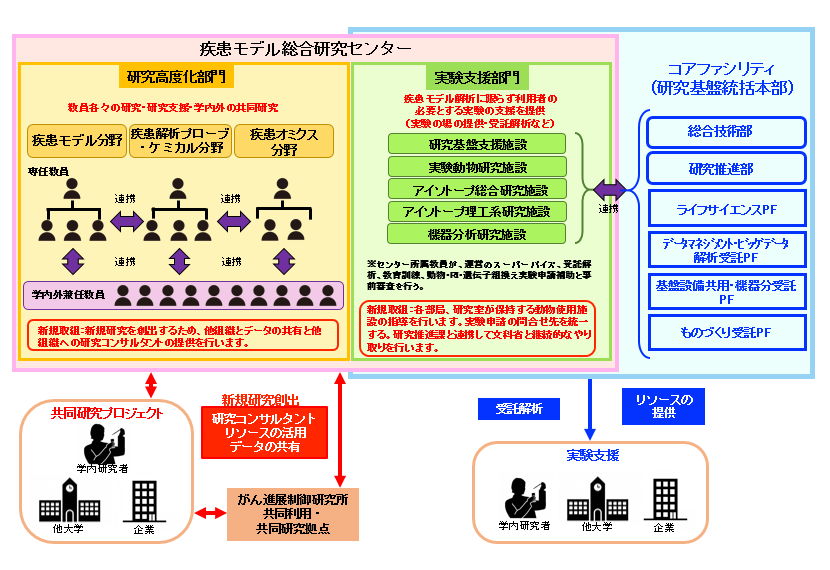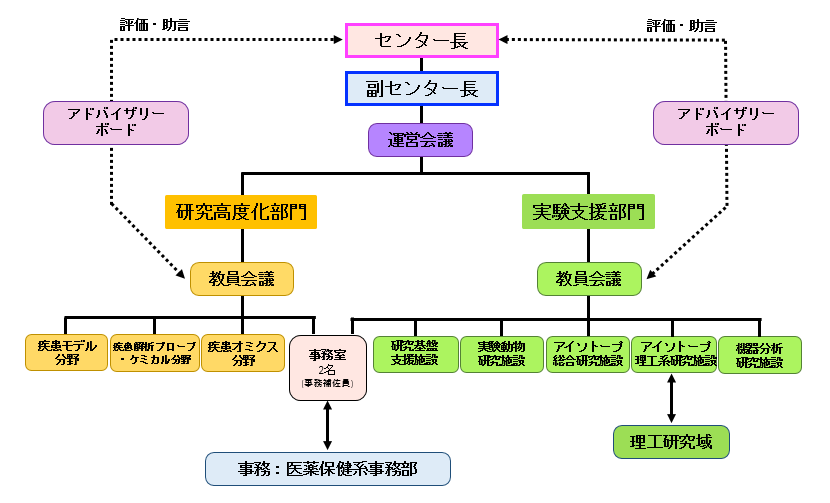Center Overview
Center Overview
The “Department of Advanced Science” consists of Division of Animal Disease Model, Division of Probe Chemistry for Disease Analysis, and Division of Integrated Omics Research, where the faculty members conduct their own research, and the “Research Support Core” consists of Bioscience Core Facility, Institute for Experimental Animals, Central Institute for Radioisotope Science, Radioisotope Laboratory for Natural Science and Technology, and Research Institute for Instrumental Analysis.
Department of Advanced Science aims to enhance research capabilities through close collaboration among researchers belonging to the center, with “elucidation of human pathological conditions and establishment of therapeutic methods using disease models” as a common issue. At the same time, the center also provides “research consulting” services by utilizing the advanced skills and expertise of each researcher to propose new research methods to researchers inside and outside the university, and conducts joint research based on such proposals.
Research Support Core, while focusing on the creation and analysis of disease models, will continue to be in charge of providing experimental sites as needed by users, contract analysis using the center’s facilities, education and training for students and faculty, and preliminary review of experimental plans. With regard to contracted analysis, the Center will strive to expand the types of analysis by introducing new technologies.

疾患モデル総合研究センター管理・運営図

Center Philosophy
We face various health risks such as cancer, lifestyle-related diseases, and brain diseases in all phases of life. However, elucidation of the pathogenesis of these diseases and establishment of treatments for them are still limited to a few diseases. On the other hand, in recent years, “disease model” organisms created using genome editing technology have been used to elucidate the pathology of human diseases and to establish treatments for them. This center will create new “disease model” organisms or introduce existing “disease model” organisms for comprehensive analysis, and conduct “basic to clinical analysis of disease model organisms” that can respond to organ-specific reorganization of clinical departments in medicine and health science, and we aim to provide disease model organisms to evaluate the adaptation of inventions to humans. In this way, by conducting research that bridges the gap from “human diseases” to “disease models” and from “disease models” to “human diseases,” we hope to make a broad contribution to the advancement of scientific research and meet the mandate of society.
